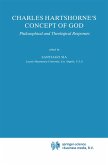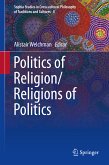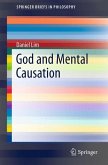Borne out of proceedings at both the American Philosophical Association and the American Academy of Religion, the volume also examines foundational questions related to the human propensity for creating and using such models, including the issue of whether we are capable of acquiring knowledge of ultimate reality. It features a sustained analysis of the concept that modeling such an ultimate reality is a fruitless endeavor doomed to failure since the ultimate might well be beyond human conception, as well as reflections on the staggering diversity of these models and their application to concepts such as spirituality, gender equality, war, and global warming. Accessible and authoritative, the collection combines section primers for those new to the field, deeper treatment in dedicated essays, and a wealth of references for further reading and study.
Dieser Download kann aus rechtlichen Gründen nur mit Rechnungsadresse in A, B, BG, CY, CZ, D, DK, EW, E, FIN, F, GR, HR, H, IRL, I, LT, L, LR, M, NL, PL, P, R, S, SLO, SK ausgeliefert werden.









